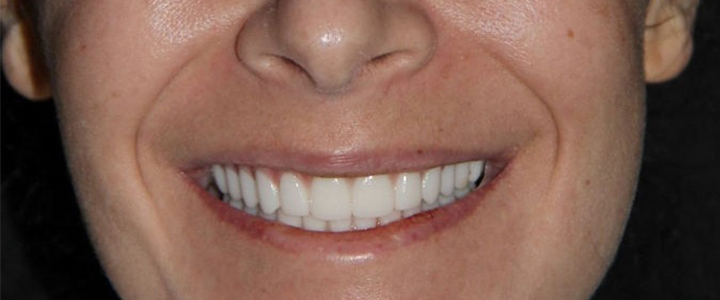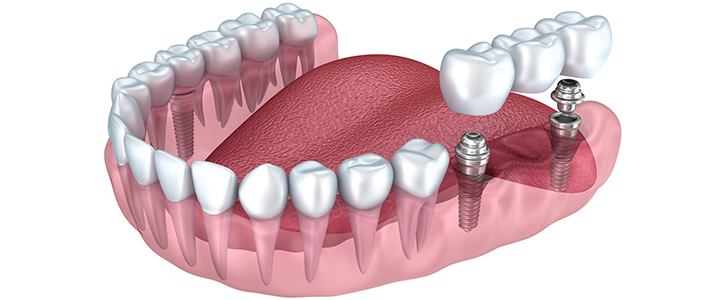A dental implant is actually a replacement for the root or roots of a tooth. Like
tooth roots, dental implants are secured in the jawbone and are not visible once
surgically placed. They are used to secure crowns (the parts of teeth seen in the
mouth), bridgework or dentures by a variety of means. They are made of titanium,
which is lightweight, strong and biocompatible, which means that it is not rejected
by the body. Titanium and titanium alloys are the most widely used metals in both
dental and other bone implants, such as orthopedic joint replacements. Dental implants
have the highest success rate of any implanted surgical device

Titanium’s special property of fusing to bone, called osseointegration (“osseo”
– bone; “integration” – fusion or joining with), is the biological basis of dental
implant success. That’s because when teeth are lost, the bone that supported those
teeth is lost too. Placing dental implants stabilizes bone, preventing its loss.
Along with replacing lost teeth, implants help maintain the jawbone’s shape and
density. This means they also support the facial skeleton and, indirectly, the soft
tissue structures — gum tissues, cheeks and lips. Dental implants help you eat,
chew, smile, talk and look completely natural. This functionality imparts social,
psychological and physical well-being.

When would someone need a dental implants
Dental implants can be used to replace a single tooth, several teeth, or all of
the teeth. The goal of teeth replacement is to restore function as well as esthetics.
When it comes to tooth replacement, generally, there are three options:
- Removable dental appliance (full denture or partial denture)
- Fixed dental bridge (cemented)
- Dental implant
Deciding on which option to choose depends on many factors. Specifically for dental
implants, these factors include:
- Location of missing tooth or teeth
- Quantity and quality of the jawbone where the dental implant is to be placed
- Health of the patient
- Cost
- Patient preference
A dental surgeon examines the area to be considered for the dental implant and makes
a clinical assessment of whether the patient is a good candidate for a dental implant.
There are great advantages to choosing a dental implant for tooth replacement over
the other options. Dental implants are conservative in that missing teeth can be
replaced without affecting or altering the adjacent teeth. Furthermore, because
dental implants integrate into the bone structure, they are very stable and can
have the look and feel of one's own teeth.